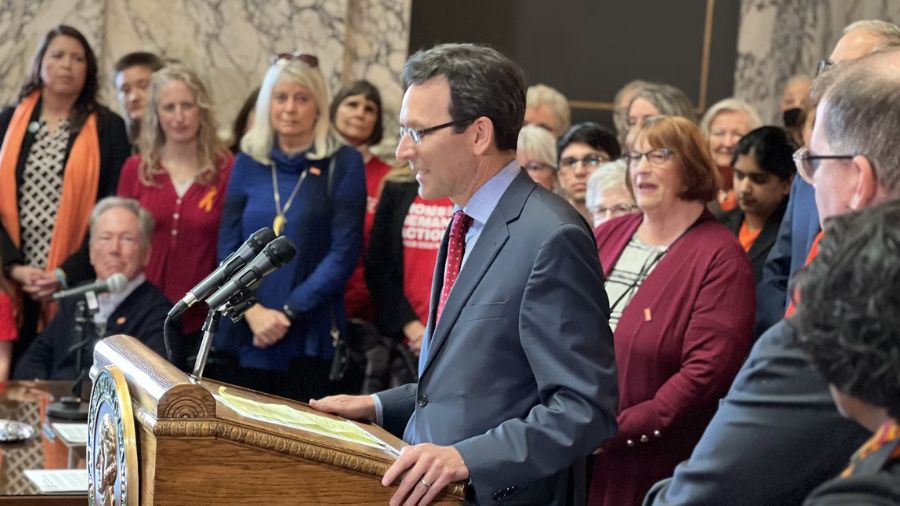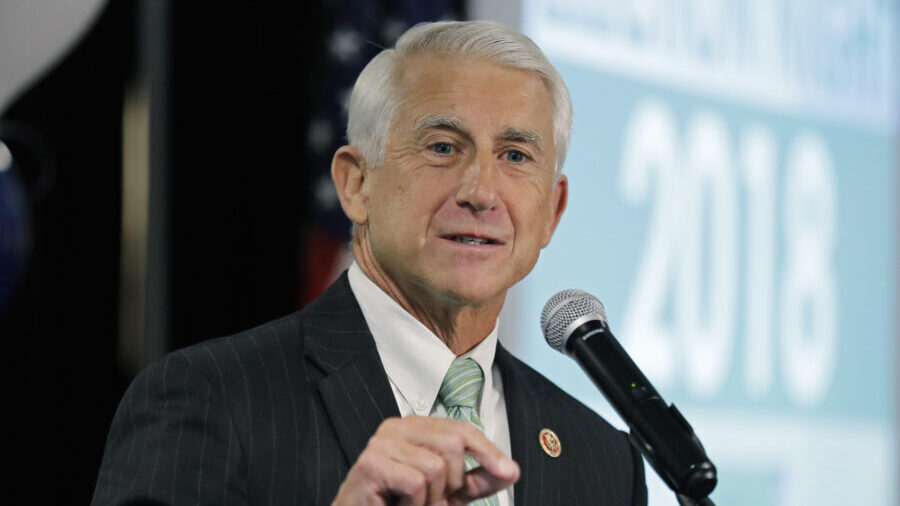Rantz questions whether Washington carbon tax will actually spur change
Dec 29, 2015, 2:43 PM | Updated: Dec 30, 2015, 8:34 am

Initiative 732 has come under increased scrutiny about its potential "revenue neutral" carbon tax ballot measure. (AP)
(AP)
KIRO Radio’s Jason Rantz was confused by how Initiative 732, which would institute a carbon tax in Washington, would actually make a noticeable and worthwhile difference to the state’s consumers. Yoram Bauman, co-founder of Carbon Washington, the group backing the initiative, laughed, since he hears that type of question all the time in his economics class.
But Rantz didn’t appreciate the perceived patronizing chuckle.
“I don’t know why you’re laughing at me,” he said. “I’m asking a question that doesn’t quite make sense to us and if you want someone to actually go in and vote yes on I-732, rather than laugh at us for asking questions and trying to figure this thing out, maybe you should help us understand it.”
Related: Attempts to kill South Lake Union rats allegedly harm dog
Initiative 732 has come under increased scrutiny since The Seattle Times reported on a state analysis conducted by nonpartisan legislative staff that found the “revenue neutral” ballot measure would actually reduce overall state tax collections by about $675 million over four years.
The initiative would impose a $25-per-metric-ton tax from emissions on gas and other fossil fuels, in order to give industries and individuals an incentive to find clean alternatives, and would, in turn, reduce the state’s sales tax by 1 percent, from 6.5 percent to 5.5 percent.
Bauman insists that the state won’t lose money with the sales tax decrease, telling Rantz that the models and assumptions used by the state analysis doesn’t match with Carbon Washington’s policy cutting the state’s sales tax by one point. He said that they would also fund a $1,500-per-year earned-income tax credit benefit for low-income families.
“Our policy phases that working-families tax rebate in at 15 percent of the earned federal income tax-credit rate in 2017 and then 25 percent in the second year in 2018,” he said. “And the state analysis, for some reason, decides to start it at the full 25 percent rate, and that’s not an accurate reflection of our policy and it produces a mistake in the financial numbers.”
The organization plans to submit its signatures for the initiative to Secretary of State’s office on Wednesday. If certified, lawmakers would need to pass it into law or it would be placed on the November 2016 ballot.
Bauman said Carbon Washington’s goal is to reform the state tax system in a way that makes it fairer and more sustainable.
“If you think about what kind of a state and what kind of a planet do we want to leave for our children and grandchildren, and to enjoy ourselves,” he said. “Right now we have some changes that we could make that would make our economy better, that would make our environment better, that would leave a better planet for our children and grandchildren.”
Related: Is the Washington DOC to blame for a deadly crash?
Bauman said the initiative is not about taxing big polluters in order to force them into changing their behavior.
“We don’t want to force people into anything,” he said. “We want to provide incentives to people to reduce their consumption of fossil fuels, and the way we’re going to do that is by making fossil fuels a little more expensive and making everything else a little bit less expensive by cutting the state’s sales tax.”
But Rantz asked if all businesses were properly incentivized and moved fully to clean energy, wouldn’t that move it past revenue neutral? Bauman said that’s a dream hypothetical, as his policy is only assuming carbon emissions will drop about 2 percent each year, which would keep things approximately revenue neutral “for decades.”
“So, 50 years from now, it’s possible that we will not be burning fossil fuels, in which case we can have a discussion about how to make up revenue from a one-point reduction in the 6.5-point state sales tax, but at least we will be having that discussion in a world where we have solved climate change,” he said.
Bauman said the tax goes after all fossil fuel consumption in the state — some of that comes from businesses, some from consumers and some from electricity generation.
So that would mean taxing consumers?
“If you drive, if you fly on an airplane, than your cost associated with those activities is going to go up, your sales tax is going to go down,” he said.
Bauman said it’s similar to how the gas tax is applied — technically the tax is not placed on the consumer, but it gets passed along.
“The same thing is going to happen with the carbon tax, but the offset is, yes you are going to pay more for gasoline but you’ll pay less for everything else because we’re cutting sales tax by a full point,” he said.
This is where the confusion arose, as Rantz said that if the tax passes and that if the business don’t go to a cleaner energy form, they will be pass along the cost to the consumer, which will basically match the approximately 1 percent sales-tax difference.
“It doesn’t sound like anything’s changed at the end of the day,” Rantz said.
Bauman explained that most people will pay “a little more” for fossil fuels and “a few hundred a year less for everything else,” which creates “a substitution effect,” that’s leads people to make different consumption choices. For example: If you buy a new car, you would pay sales tax, and eventually taxes on your gas and then carbon tax on the gas.
“The price of gasoline that you’re gonna pay is gonna go up by a little bit, but the sales tax on buying the car is gonna go down,” he explained. “That’s gonna create incentives that are going to lead you to buying a more fuel-efficient car.”
But Rantz remained skeptical, asking why that might not really lead to a change in habits if consumers know it will all end up even anyway. Bauman said the tactic has been proven in British Columbia, where this policy reduced carbon emissions by 10 to 15 percent.
“Guess what, they didn’t suddenly, magically stop using fossil fuels overnight,” he said. “And in British Columbia, the policy is approximately revenue-neutral; it’s been that way since 2008.”














